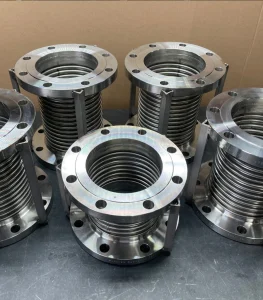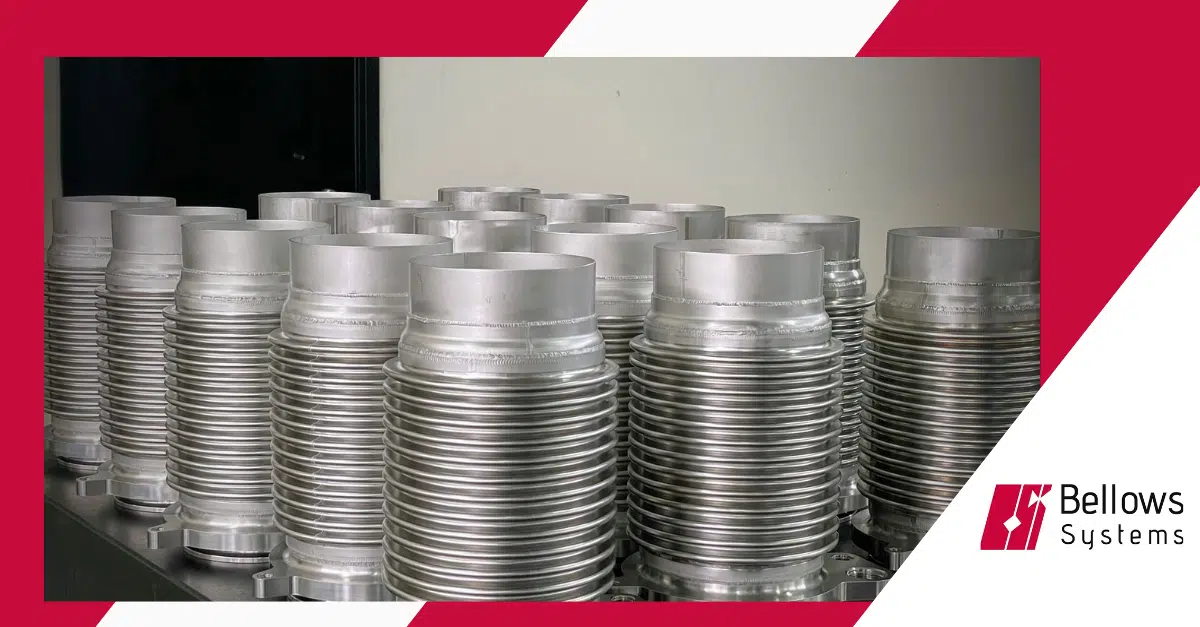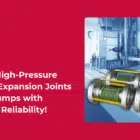In industries that operate in corrosive environments, such as chemical processing, power generation, and oil and gas, the durability and reliability of metal bellows and expansion joints are crucial. These components must accommodate thermal expansion, vibrations, and other mechanical stresses while resisting corrosion. The choice between stainless steels and high-nickel alloys is vital for ensuring long-term functionality and safety. This article explores the considerations necessary for selecting the right materials for these applications.
Selecting Stainless and High-Nickel Alloys for Corrosive Services

Metal bellows and expansion joints are exposed to a variety of corrosive elements that can degrade materials through chemical reactions. These environments might include high concentrations of acids, bases, or salts, and can involve high temperatures and pressures. The primary corrosive factors to consider include the chemical concentration, temperature, presence of oxidizing or reducing agents, and mechanical stress factors like vibration and pressure fluctuations.
Stainless Steels for Metal Bellows and Expansion Joints:

Stainless steels are favored for their corrosion resistance, mechanical properties, and cost-effectiveness. Types 304, 316, and 317 are commonly used in the fabrication of metal bellows and expansion joints:
- Type 304: An 18-8 austenitic stainless steel suitable for moderate corrosive environments. It is often chosen for its flexibility and fatigue resistance in lower temperature and concentration applications.
- Type 316: Known for its enhanced resistance to chloride ion corrosion, it is better suited for marine applications and environments with higher chloride levels. It is ideal for bellows that require higher strength and corrosion resistance.
- Type 317: Offers higher resistance than Type 316 and is suitable for more aggressive corrosive environments, often used in chemical processes involving stronger acids or higher temperatures.
- Type 321: Similar to Type 304 but with added titanium to stabilize the alloy against chromium carbide formation. Type 321 is particularly valuable in applications where temperatures fluctuate sharply, such as in aircraft exhaust systems, industrial power generation systems or high temperature ducting. Its superior resistance to intergranular corrosion makes it ideal for bellows that experience both high temperatures and corrosive conditions.
- Alloy 20: Known for its exceptional corrosion resistance to sulfuric acid and other aggressive environments, Alloy 20 (also known as Carpenter 20) is a nickel-chromium-molybdenum stainless steel alloy often used in applications involving sulfuric acid. Its robustness makes it an excellent choice for chemical processing equipment, including metal bellows and expansion joints that require high corrosion resistance and durability against acid attack.
The selection of a particular grade of stainless steel depends on balancing performance, environmental conditions, and cost. Each type offers different levels of corrosion resistance, durability, and adaptability to environmental stresses.
High-Nickel Alloys for Extreme Conditions:

In conditions where stainless steels might falter, high-nickel alloys provide superior performance. These alloys are especially effective in severe corrosive environments or in applications involving high temperatures:
- Monel (Nickel-Copper): Excellent for sea water and acidic conditions, making it suitable for offshore oil and gas applications where bellows are exposed to harsh marine environments.
- Inconel (Nickel-Chromium-Iron): Capable of withstanding extreme temperatures and pressures, ideal for power generation applications where high temperature resistance is crucial.
- Hastelloy (Nickel-Molybdenum-Chromium): Exceptional in resisting pitting and stress corrosion cracking, commonly used in chemical processing industries where strong acids are present.
These high-nickel alloys are selected for their ability to maintain structural integrity and corrosion resistance under extreme conditions, thereby extending the lifespan of bellows and joints.
Case Studies and Practical Applications:
For instance, Hastelloy alloys have been employed effectively in expansion joints within sulfuric acid plants, where they resist the aggressive corrosion typically seen with fluctuating acid concentrations and temperatures. Monel has been utilized in refining processes to handle sour gas streams, where its resistance to sulfide stress cracking is critical.
Selecting the Right Alloy:
The selection process for metal bellows and expansion joints involves evaluating:
Environmental Conditions: Chemical nature, temperature, and mechanical stresses.
Material Properties: Fatigue strength, flexibility, corrosion resistance.
Cost and Availability: Initial cost vs. lifecycle cost, availability of materials.
Testing and real-world performance data are invaluable in making informed decisions. Simulated environment testing and historical performance in similar applications can guide the selection process.
Conclusion:
Choosing the right material for metal bellows and expansion joints in corrosive environments is a complex decision with significant safety and financial implications. Stainless steels offer a balance of cost and performance for less severe environments, while high-nickel alloys are preferable for extreme conditions. Understanding the specific operational demands and conducting thorough material evaluations are essential for optimizing the durability and performance of these critical components. As technology advances, the development of new materials and improvement of existing ones will continue to enhance the capabilities of metal bellows and expansion joints in challenging industrial applications.





